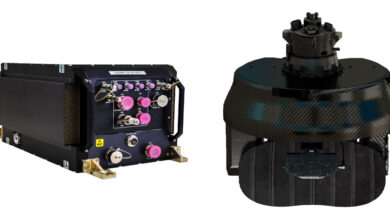General Atomics Researcher Honored for Career Achievement in Fusion Science
San Diego. The Fusion Power Associates Board of Directors has selected Dr. Edward (Ted) Strait to receive its Distinguished Career Award for his contributions to fusion science and advancing the performance of fusion plasmas.
 Strait, a General Atomics (GA) physicist since 1982, has led multiple research groups at the DIII-D National Fusion Facility, including the Stability and ITER Physics research groups. His research has covered a broad range of topics related to plasma stability and magnetic measurements. Strait is also a member and past chair of the International Tokamak Physics Activity’s Topical Group on Magnetohydrodynamic Stability.
Strait, a General Atomics (GA) physicist since 1982, has led multiple research groups at the DIII-D National Fusion Facility, including the Stability and ITER Physics research groups. His research has covered a broad range of topics related to plasma stability and magnetic measurements. Strait is also a member and past chair of the International Tokamak Physics Activity’s Topical Group on Magnetohydrodynamic Stability.
According to FPA, Strait was honored for “decades of outstanding scientific contributions that have led to advancing the performance of tokamak plasmas, and especially for his leadership in areas leading to the achievement of extremely high beta equilibria and validation of predicted stability limits, and for the design, implementation and interpretation of measurements of fluctuating and equilibrium 3D magnetic fields that have significantly advanced the prospects for fusion power.”
“This award is highly appropriate, given the many years of groundbreaking and prize-winning work by Ted, helping to keep DIII-D at the forefront of fusion energy science,” said GA Energy Group Senior Vice President Jeff Quintenz. “We are fortunate to have so many talented researchers like Ted at DIII-D.”
The FPA Distinguished Career Awards have been presented annually since 1987 to individuals who have made distinguished, lifelong, career contributions to fusion development. Strait is a three-time recipient of the American Physical Society Award for Excellence in Plasma Physics Research. The award will be presented at the FPA annual meeting in December.
DIII-D is the largest magnetic fusion research facility in the U.S. and is operated as a national user facility by GA for the U.S. Department of Energy’s Office of Science. Researchers come to DIII-D from across the globe to explore a wide range of topics from fundamental plasma science to how future fusion power plants will work.





